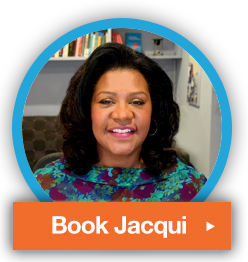How To Give An Awards Speech
Tips For Oscar Nominees – And The Rest Of Us!
CONGRATULATIONS to British director Steve McQueen for ending his speech so powerfully at the recent British Academy Film Awards (BAFTAs). His scorching reminder that slavery is still an evil endured by 21 million people around the world dwarfed other acceptance speeches.
The celebration of his artistic leadership of ’12 Years a Slave’ is well deserved. It would be a fitting, final act of leadership to this remarkable film if his Oscar speech (hopefully!) is well prepared, truly expresses his leadership presence and is delivered confidently.
He still has time to prepare a great speech using my essential tips for public speaking. They work well for almost any speech and are particularly good for Oscar speeches.
The first thing to consider is timing. Awards speeches should be extremely short and Oscar producers twitch once speakers exceed 60 seconds! The maths is crucial. Assuming a normal speaking rate of 130 words per minute that means 130 precious words. If you include some necessary pausing the word count drops to about 120 words.
To meet this challenge the content needs to be brutally sharp. Decide what your message is and who you’re addressing: The Academy, family, colleagues or viewers around the world. If you acknowledge all four equally that’s most of your word count gobbled up.
Next it’s structure: beginning, middle and end. Steve’s BAFTA speech had that format. The beginning was a reaction to winning the award which is always a good idea. But it was also untidy and weak, especially when he was searching for the name of the song “Roll Jordan Roll” and tapping his fingers furiously on the podium. The song title written on notepaper would have been much better. He also read throughout from a scrap of paper that was distracting and a bit unprofessional.
The middle section was a thank you list. These were nicely broken up with a short comment after each name. When he mentioned the delightful actress Lupita Nyong’o – he added “a star is born”.
He ended the middle section by thanking his mum. When speaking directly to her he was his most expressive and natural.
He went straight into his powerful ending with the words “Finally, right now there are 21 million people…” This was his key message and it desperately needed more set up and more time. The audience needed a signal that something different and important was coming. This dramatically increases impact.
To create more time for the powerful ending the middle section needed to be shorter. Thanking fewer people would have made a big difference.
Rehearse. Rehearse. Rehearse. That’s the best advice to deliver with confidence. Start by recording yourself with sound only. Do this several times to get fluent quickly. Then record and review yourself with sound and vision. Give yourself an opportunity to see what your audience will see and tidy up any unconscious and unhelpful habits. This is when you make sure your speech fits the time slot.
On Oscar night itself try to relax and massage any tension in the jaw and shoulders. Clench and release shoulders and jaw as necessary. When the list of nominees for best director/film is announced make sure you are taking slow, low breaths using your diaphragm. Keep doing so all the way to the podium! Before you start speaking BLAB: breathe, look at the audience and begin.
Two billion people around the world will be watching you at The Oscars…
I will be one of them. Good luck.
© Jacqui Harper 2014
Categorised in: Making Speeches

